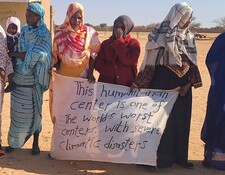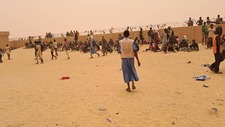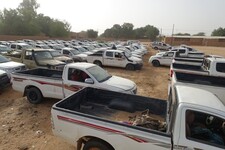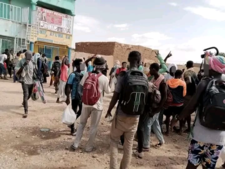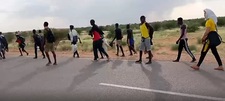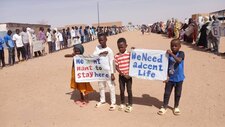
Alarme Phone Sahara, together with Refugees in Libya, Refugees in Tunisia, Watch the Med - Alarmphone, ASGI and other international organisations, has launched an open letter to the UNHCR to adress the situation in UNHCR refugee camp in Agadez and amplify the voices of refugees inside the camp protesting against unbearable living conditions.


